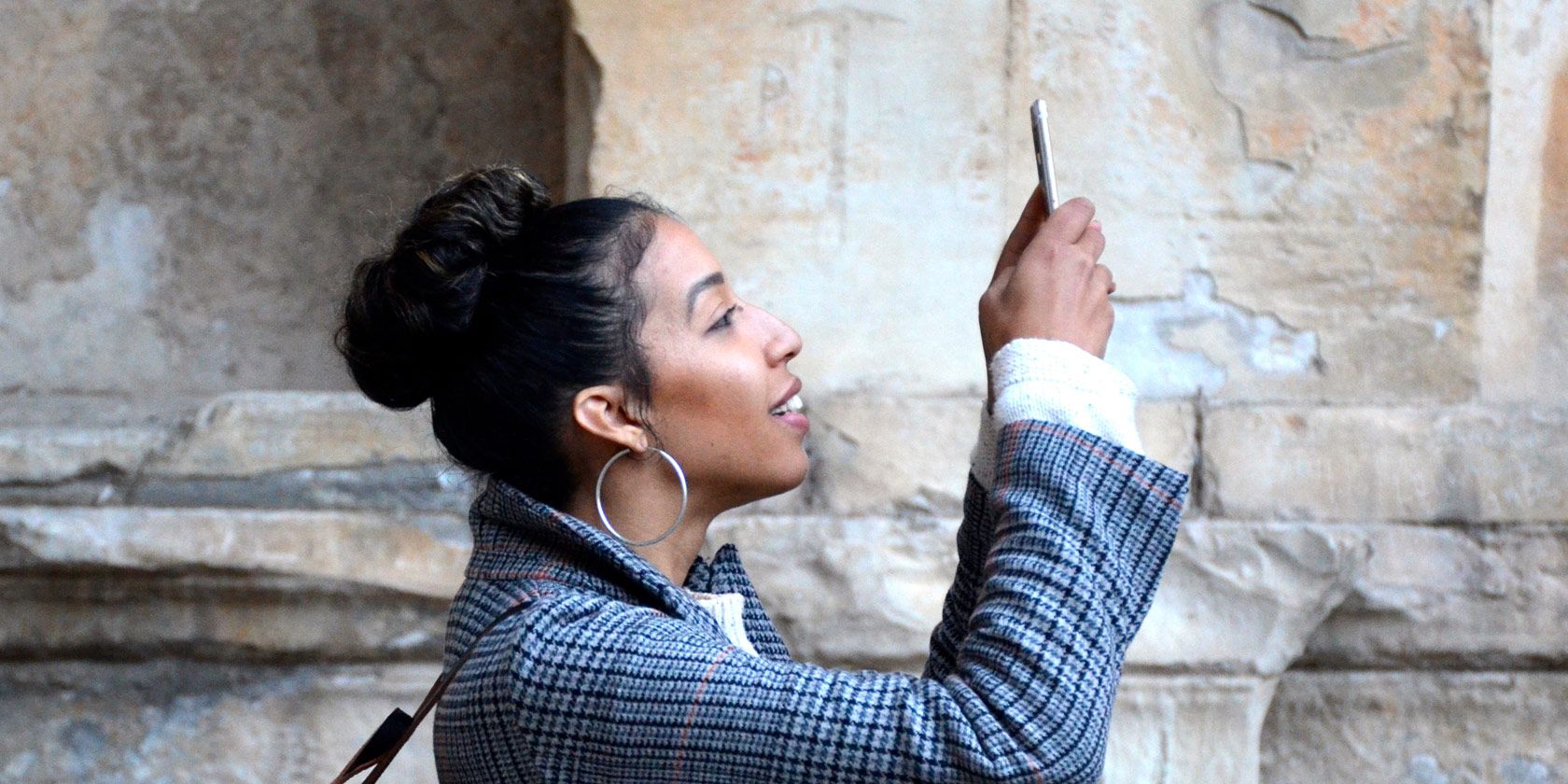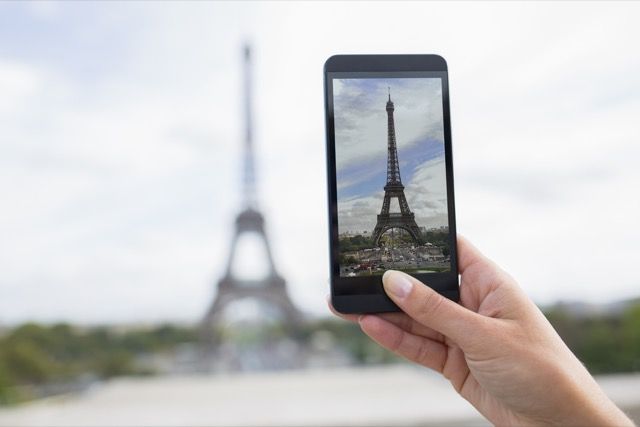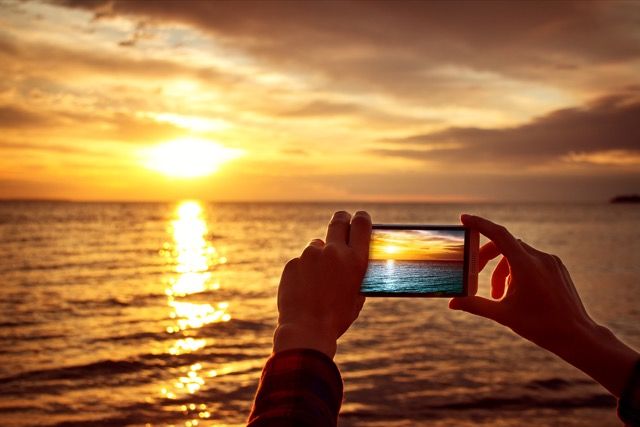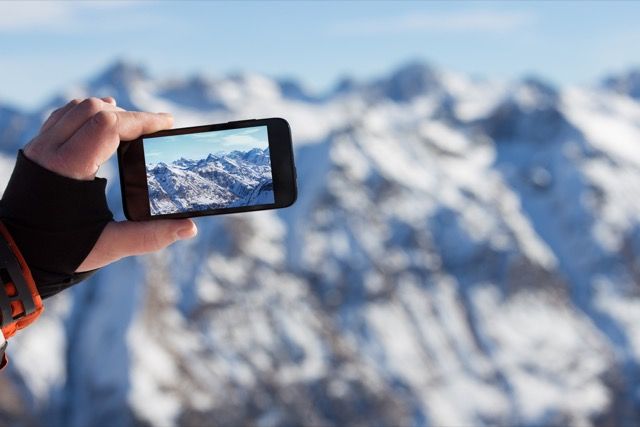Smartphone photography has made it easy to record almost every experience of your life, from the burger you ate for lunch to your visit to the Taj Mahal. And that's great for sharing things with your family and friends on social media, but how does it affect your experiences? Does it distract you from what you're doing, or does it help you become more engaged?
People have a lot of strong opinions about snapping quick pictures with cell phones, but there hasn't been a whole lot of scientific study on the topic. Until recently, that is.
How Taking Photos Affects Your Experience
A team of scientists from Yale, USC, and the University of Pennsylvania conducted an interesting study on this question, and published their results in an article titled "How Taking Photos Increases Enjoyment of Experiences".
The researchers found something that might seem a bit counterintuitive: that taking photos of experiences actually does enhance the experience. This might be a bit surprising because, as the authors say, "taking photos can be seen as a secondary task that reduces engagement and enjoyment by forcing attentional shifts" -- it's not hard to imagine that people would be distracted from an experience because they're focusing on taking photos.
On the other hand, taking good photos requires that you focus your attention even more on the subject of your experience. Does this translate to increased engagement? The study finds that it does. Participants were divided between a number of conditions; some took a bus tour and took pictures, others ate lunch and took pictures, and still others watched a first-person video of guided bus tours and could simulate taking pictures by clicking a button on the screen.
In all three conditions, participants who took photos were more engaged in the activity and reported higher enjoyment of it, even up to three weeks later. Interestingly, the participants in the third condition weren't able to revisit their photos, and they still had higher enjoyment levels.
Perhaps most surprising, participants in another condition were asked to plan out the photos they would take on a bus tour, but to not actually take them -- just to think about how they would do so. And they also reported higher enjoyment ratings.
It seems that the mental process of taking pictures -- and not the picture-taking itself -- increases engagement in experiences, and that increased engagement leads to greater enjoyment. However, the researchers also found that when taking pictures was more distracting, such as when participants had to navigate a more intrusive DSLR interface, this effect was eliminated. The effect was also mitigated when the task was already engaging (the participants were building a structure out of food).
All in all, the study did find that taking photos increased engagement and enjoyment of experiences, but that the effect was minimized by the photographing being intrusive or the task already being engaging. The authors point out that the study raises many questions, such as whether the number of photos, type of photos, the purpose of the photo-taking, and whether photos are reviewed after the fact might also affect the enjoyment of an experience.
Increasing Enjoyment With Photography
Regardless of the questions that remain to be answered, and the effects seen in the study that may be difficult to interpret, the researchers found that taking photos with smartphones can, in fact, make experiences more enjoyable. There are a few things you should keep in mind, though, to make sure you're getting the most out of the entire experience.
1. Make the photography process as unobtrusive as possible.
The study found that when participants had to use a more involved interface, it nullified the increase in enjoyment provided by simpler photography experiences. In short, use your phone to take pictures. The interface is simple, the process is fast and unobtrusive, and you don't need to take the time to set up a camera or even grab it out of your bag.
Of course, if you consider photography to be one of your hobbies and you really like tweaking the settings of the camera for each shot, that's a different story. That changes the experience and makes the photography a part of it, instead of something outside of it. If photography is your thing, by all means, go all out!
2. Don't stop doing something to take photos.
The study found that activities that were already engaging -- like building the Eiffel Tower out of wafers and icing -- weren't made more enjoyable by taking photos. If you're doing something that you'd need to interrupt to snap a few quick pictures, you're probably better off just not doing it. When the experience is linked to seeing something, though, snap away!
Of course, this is likely driven by personal preference. Some people will find an experience to be very enjoyable regardless of whether it's been interrupted by taking a photo. In general, however, if you're doing something, you should just be in the moment and stay engaged.
3. Focus on the visuals of your experience.
If just thinking about taking photos made the experience more enjoyable, it stands to reason that becoming very visually engaged is at the core of getting more out of it. Even if you're not taking pictures, remember to take a moment to marvel at what you're seeing and think about why it's so visually impressive.
You could line up a great shot in your mind, go to a different vantage point to get a unique angle, or even just stare for a while at the parts of the scene that you're most visually attracted to. Because this study was a very early one in this particular area of inquiry, it's not clear exactly what mental processes need to happen, but the results definitely indicate that dedicating your attention to the visual impressiveness of the scene is what's important.
4. Don't get distracted.
One of the experiments in the study used eye-tracking to determine where participants allocated their attention while they were going through a museum exhibit, and found that people who were tasked with taking photos spent more time focusing on the important parts of the exhibits instead of other things like placards and signs.
You can use this effect to your advantage by keeping your focus on what's important in your experience; mute your phone or put it into airplane mode so you aren't checking your email, do your best to stay present in the moment (using mindfulness to stay focused on the experience could help), and remember that you only have limited attention; use it where it counts!
Does Photography Improve Your Experiences?
This study, of course, is only a single study and looked at photo-taking in a small set of very specific situations (which were mostly solo experiences). While the researchers did their best to get generalizable results, the way photography affects the enjoyment of an experience is likely dependent as much on the person taking the photos as it is the process.
So we want to hear from you!
Do you enjoy experiences more when you take photos? Or do you find it too distracting? Do you intentionally look back at the photos you take, or do they stay on your phone, only occasionally flipped through? Share your thoughts in the comments below!
Image Credits: LDprod via Shutterstock, Anna Grigorjeva via Shutterstock, Tiplyashina Evgeniya via Shutterstock




